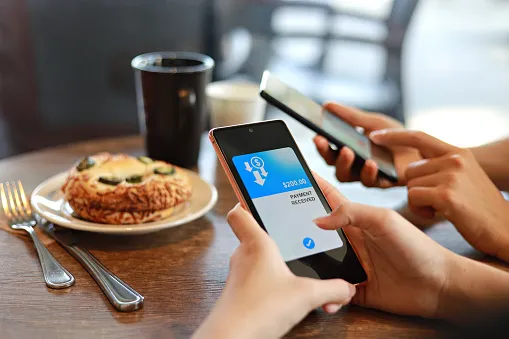
The 2017 #MeToo movement, for example, grew from an online solidarity campaign to a wide-reaching and global movement against sexual harassment and assault. The #MeToo movement has since been linked to numerous high-profile resignations and criminal cases. A movement starting in Argentina against violence against women, #NiUnaMenos (‘not one less’), has also spread to multiple countries. This effort has helped expand transnational solidarity for women’s rights and expose abuses. That year, a Tunisian street vendor named Mohamed Bouazizi set himself on fire outside a local government office after police confiscated his produce stand. The twenty-six-year-old’s act of desperation and defiance kicked off demonstrations.
With the rise of social media platforms such as Facebook, Twitter, and Instagram, there has been a significant shift in how people communicate with each other. While some argue that social media has improved human communication, others believe that it has actually hindered it.
Pros of Social Media in Improving Human Communication
And so it’s hard to do this kind of introspection, but I’m guessing it’s about half the time. So these are some of the examples of why Zoom could be so fatiguing. In part two of this article, we will look at how social media affects psychological well-being and ways of using social media that are likely to amplify its benefits and decrease its harms. One of the ways this has manifested is through social movements, both positive’like campaigns to engage voters’and negative, such as recruitment by terrorist organizations. Meanwhile, some governments have taken censorship to the next level and shut down the internet altogether to quell unrest.
1. Increased Connectivity: One of the main benefits of social media is the ability to connect with people from all over the world in real-time. This has made it easier for individuals to stay in touch with friends and family members, regardless of their location.
And what’s even crazier is, let’s say you’re using some system that never uses AI, never allows AI to be part of it. Well, now you’ve been primed by AI, even though you have no knowledge of it, there’s no representation of that, but your brain has been changed. So our tech changes, our policy and regulation changes and our social behaviors change. No, but we’re optimizing, we’re creating the most benefit from the cars we can and minimizing the cost. Most cars produce carbon, and that’s not good for our well-being in the long term either, and we’re working on that. So I think it’s an ongoing thing, that people will need to just focus on the way they’re using their tech to think about how is this beneficial for them.
But does that happen in between, say Jeff and Kim who have a professional relationship? In those kind of situations we see lying is more likely to be done on the phone, so vocally or face-to-face, than it will be in an email or text message. So I think the future of lying is one that will be driven primarily by psychology. Also by some of these affordances of technology like, will there be a record of this or not? Now in our latest work, what we’re seeing is that people are getting really good at lying even in recorded media.
2. Enhanced Collaboration: Social media platforms have also revolutionized how businesses and organizations collaborate on projects. Through tools like Slack and Google Drive, teams can work together seamlessly no matter where they are located.
Cons of Social Media in Harming Human Communication
Of the sixty-five countries Freedom House monitors for internet freedom, a record high of twenty-two nations imposed intentional disruptions to connectivity in 2020. Most notably, China maintains what some have called the Great Firewall. This highly effective system of censorship blocks foreign websites such as Facebook and Twitter. In February 2021, a military coup ousted the country’s civilian government, ending a decade of democratic reforms. Finally, if you feel like your social media habit has gotten out-of-control, then you can use a tool like the Freedom app, which can block specific apps and websites.
1. Decreased Face-to-Face Interaction: One of the major drawbacks of social media is the decrease in face-to-face communication. Many people now prefer to communicate through text or messaging rather than having in-person conversations.
2. Miscommunication: Another issue with social media is the potential for miscommunication. Without the nuances of tone and body language, messages can be easily misinterpreted, leading to conflicts and misunderstandings.
Charmaraman started studying the impacts of televised media on youth in the 2000s just as social media continued to emerge. Social media changed the idea that you can be the agent of your own reality and influence others, she says. There is no denying that social media has been helpful in connecting us with others. We also can’t deny its unfortunate impact on our social skills, making us lazy communicators and disrupting our need for meaningful conversation.
Conclusion
While social media has certainly changed the way we communicate, whether it has improved human communication is still up for debate. It is clear that social media has both positive and negative impacts on how we interact with one another. It is important for individuals to be mindful of how they use social media and to make an effort to maintain meaningful connections in both the digital and physical worlds.



